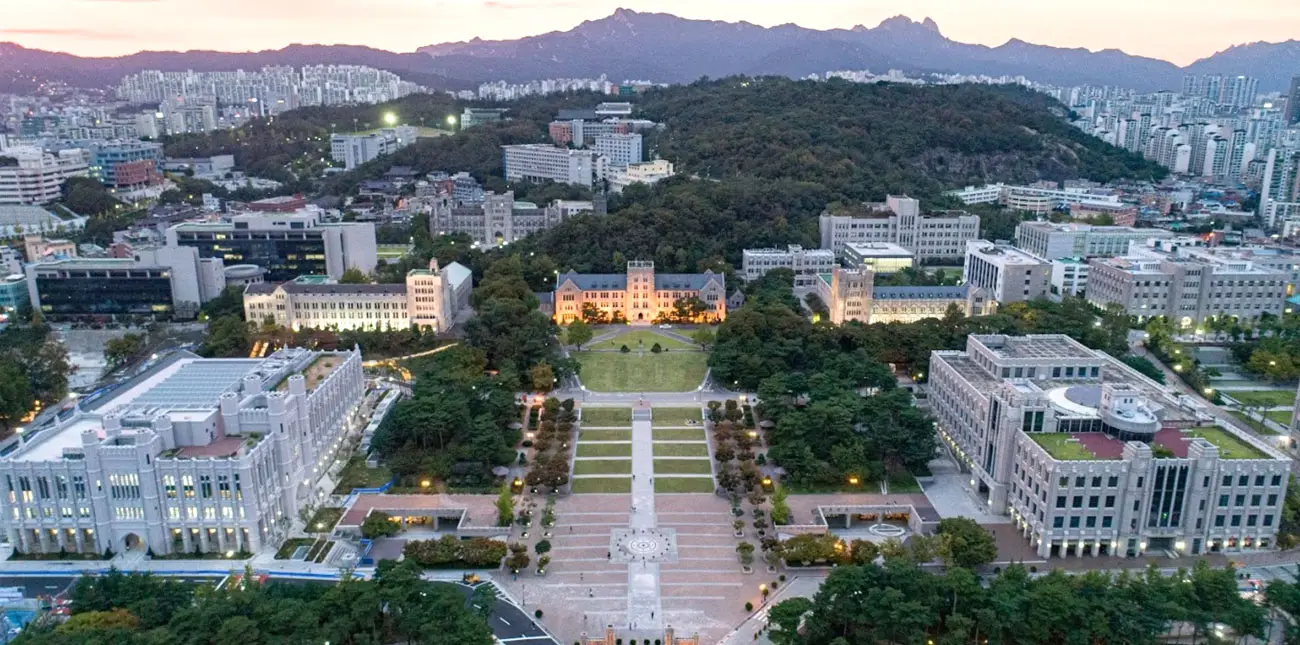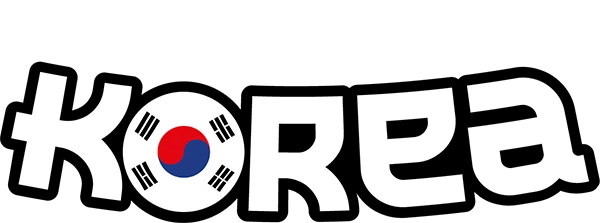Residence Eligibility and Stay Duration

-
Foreigner Registration in Korea
-
Change of Stay Status
-
Extension of Stay Period
-
Report of Addres Change
-
Part-Time Job Guidelines for International Students in Korea
Foreigner Registration in Korea
Foreign nationals planning to stay in Korea for more than 90 days must register as a foreigner within 90 days of arrival.
Additionally, if you are granted a new visa status or permission to change your stay category, registration must be completed immediately upon approval.
A Canadian citizen who entered Korea with a B-2 (Transit) visa and stays for 5 months must register as a foreigner at the time of applying for a change in visa status.
Documents Required for Registration
- Completed application form
- Valid passport
- One recent passport-sized photograph (taken within the past 6 months)
- Certificate of enrollment (for students) or researcher certificate (issued after entry)
- Registration fee
- Tuberculosis (TB) test confirmation - required for certain individuals who received visas before July 1, 2016, and were exempt from submitting TB certificates abroad
Proof of Residence
Applicants must also submit documents verifying their place of stay in Korea (e.g., rental contract, accommodation letter, etc.).
Who Is Exempt from Registration?
- Holders of A-1, A-2, or A-3 visas (e.g., diplomats and government officials)
- Individuals involved in essential diplomatic, industrial, or national defense duties and their immediate families
- Canadian nationals visiting without a visa for less than 6 months
Change of Stay Status
What Is a Change of Stay Status?
A Change of Stay Status applies when a foreign national already in Korea decides to discontinue the activities permitted under their current visa and wishes to begin new activities that fall under a different visa category.
When to Apply
- You must apply before starting any activities related to the new visa type.
- If you hold a diplomatic, official, or agreement visa, the application must be submitted within 30 days of your status change.
Documents Required
- Completed application form for status change
- Passport
- Alien Registration Card (ARC), if applicable
- Any additional documents specific to the new visa category
- Application fee
Application for Change of Status of Residence
Extension of Stay Period
What Is a Stay Period Extension?
A Stay Period Extension allows foreign nationals in Korea to legally remain in the country beyond the original duration approved on their visa. This permission must be granted by immigration authorities before the current stay expires.
When to Apply
You must apply for an extension before your current stay period ends.
Documents Needed
- Completed application form for extending the period of stay
- Passport
- Alien Registration Card (ARC), if applicable
- Any supporting documents required based on your visa type
- Application fee
Application for Extension of Period of Stay
What is a Report of Address Change?
What Is a Report of Address Change?
Registered foreign residents in Korea must notify immigration authorities if they move to a new residence. This report must be filed within 15 days of relocating.
When Must You Report?
You must file a change of address in the following situations:
- Upon initial foreign resident registration or when reporting domestic residence as an overseas Korean
- If your residential address changes after registration
- When applying for a stay period extension
- During a stay status change, especially when moving from short-term to long-term status
- When applying for permanent residency
Reporting Deadline
The report must be made within 15 days from the date you move.
Not reporting within this timeframe is a violation of Article 36 of the Immigration Act and may result in a fine of up to 1 million KRW.
Where to Report
You can submit your report at:
- The local immigration office or foreigner management office with jurisdiction over your new address
- The local municipal, town, or district office
Required Documents
- Passport
- Alien Registration Card (ARC)
- Proof of residence (e.g., lease, housing contract, utility bill)
- Completed application form
Note: Additional documents may be requested during the review process if necessary.
Application for Change of Place of Stay
Part-Time Job Guidelines for International Students in Korea
International students in Korea are permitted to engage in part-time work, primarily for basic roles such as manual or service-based labor. More specialized roles—such as those under programs like Teach and Learn in Korea (TaLK), or positions as language instructors and translators—follow separate regulations as outlined in [Annex 1-2] of the Enforcement Decree of the Immigration Act.
Note: Private tutoring is tightly regulated due to considerations like location and the type of student being taught.
Steps to Get Approval for Part-Time Work
Step 1.
Employment Contract
Secure a written agreement between the student and the employer. The contract must clearly state the job details and hourly wage.
Step 2.
Part-Time Work Approval Form
Fill out the designated form, which must be signed and endorsed by your university’s international student advisor.
Step 3.
Submit Application
You can apply online or visit the local immigration office in person to submit the necessary documents.
Step 4.
Receive Approval
Once approved, you'll receive an official permit—either as a sticker or through an online printout.
Who Is Eligible?
- Students must demonstrate basic Korean language ability, verified by their university.
- Must hold one of the following visa categories:
- D-2-1 to D-2-4, D-2-6, D-2-7 (various academic degree programs)
- D-4-1 or D-4-7 (language training students), and D-2-8 (visiting students) - permitted after 6 months from entry or qualification change.
| Program | Year | Start Time | Korean Proficiency Standards ① TOPIK ② Social Integration Program ③ King Sejong Institute | Permitted Hours | Accredited University · Academic Excellence, Korean Proficiency Excellence (Weekdays) | ||
|---|---|---|---|---|---|---|---|
| weekdays | weekend·vacation | ||||||
| Associate Degree | – | Immediately available | ① TOPIK Level 3 ② Completion of Level 3 or Pre-evaluation score of 61 or higher ③ Completion of Intermediate 1 or higher | X | 10 Hours | 10 Hours | |
| O | 25 Hours | Unlimited time allowed | 30 Hours | ||||
| Bachelor’s degree | 1st–2nd Year | Immediately available | X | 10 Hours | 10 Hours | ||
| O | 25 Hours | Unlimited time allowed | 30 Hours | ||||
| 3rd–4th Year | ① TOPIK Level 4 ② Completion of Level 4 or Pre-evaluation score of 81 or higher ③ Completion of Intermediate 2 or higher | X | 10 Hours | 10 Hours | |||
| O | 25 Hours | Unlimited time allowed | 30 Hours | ||||
| Master’s and Doctoral | – | Immediately available | X | 15 Hours | 15 Hours | ||
| O | 30 Hours | Unlimited time allowed | 35 Hours | ||||
Required Documents for Part-Time Work Approval
To apply for part-time work authorization in Korea, international students must prepare the following:
- Valid passport and Alien Registration Card (ARC)
- Completed application form
- Part-Time Employment Confirmation Form (signed by university advisor)
- Academic transcript or certificate of attendance (can be verified via FIMS if available)
- Korean language proficiency certificate (if applicable)
- Copy of the employer’s Business Registration Certificate
- Standard employment contract
- Part-Time Employment Compliance Form (if applicable)
Activities That Don’t Require Permission
Some activities do not need part-time work authorization if they involve:
- Temporary rewards, prizes, or light compensation
- Non-regular activities that do not interfere with your study visa status
Penalties for Unauthorized Work
Engaging in employment without official permission—or breaching the terms of permitted part-time work—will lead to legal penalties.
Important: Illegal employment in the construction industry will result in immediate deportation, regardless of previous violations. However, entry bans may be postponed in some cases.
D-2-7 Visa for Work-Learning Programs
For students with D-2-7 status (such as government scholarship recipients), changing to an E-7 visa (Specific Activity) comes with added flexibility:
- No restrictions related to company size or employment quota
- Broader range of eligible job fields
Learn More:
Visit Hi Korea or the Korea Visa Portal for the latest updates and full application procedures.
